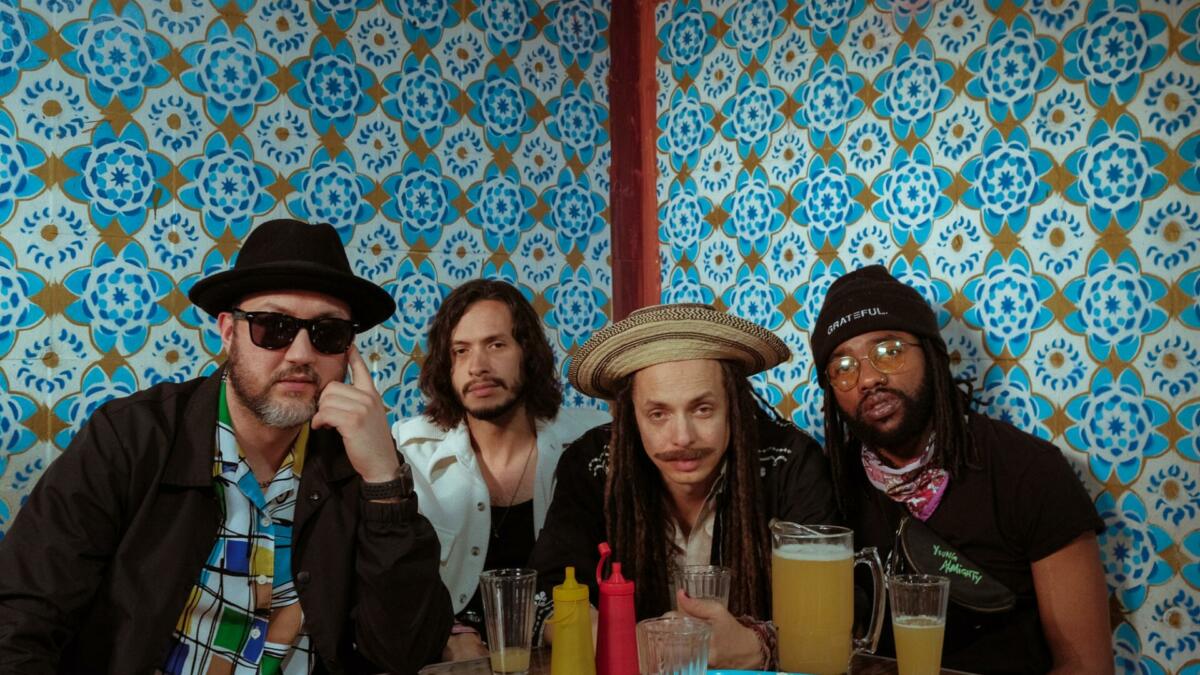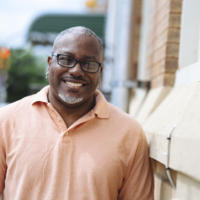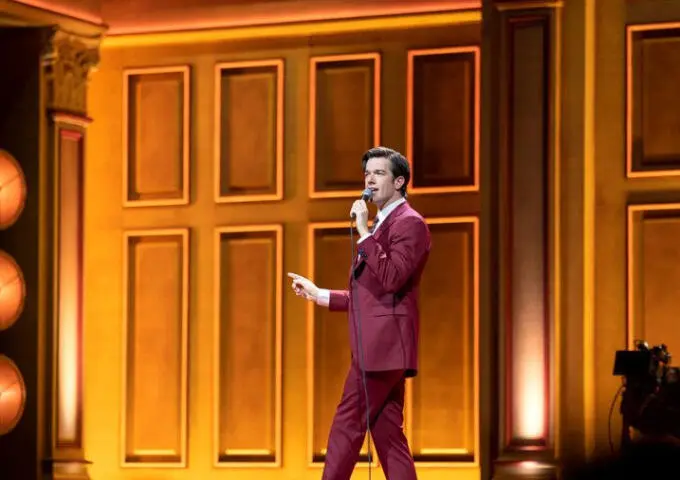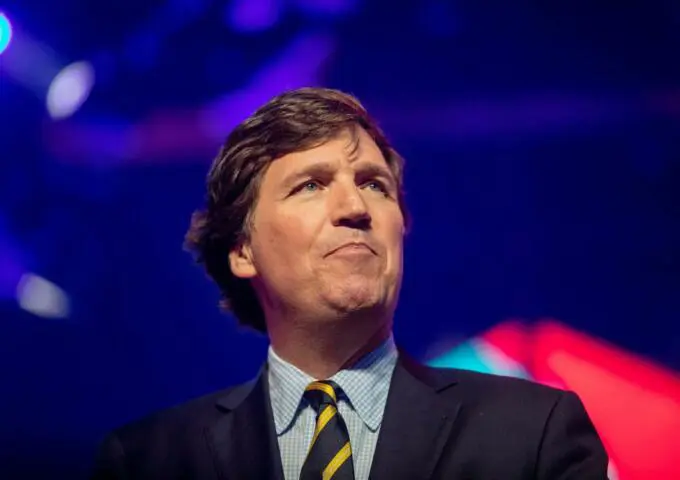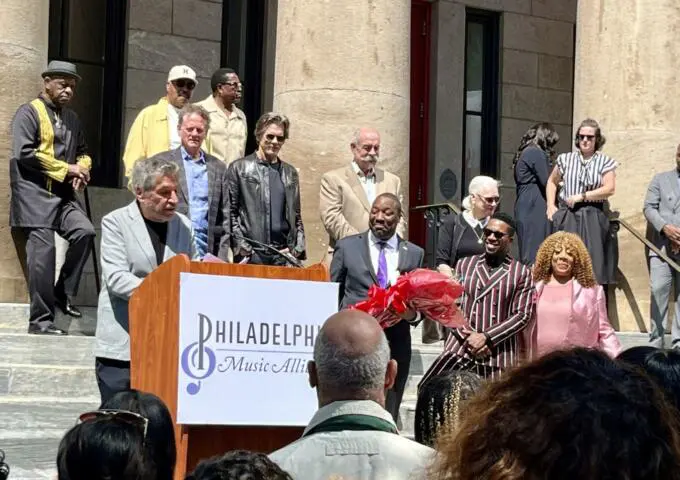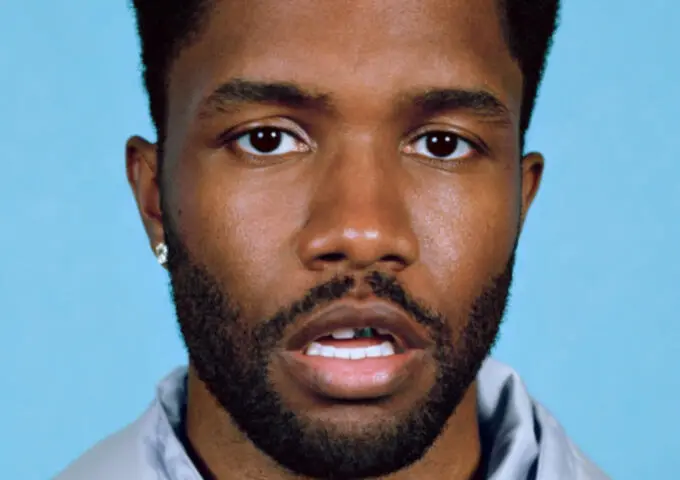Philadelphia is in for an uproarious treat when the rock-fusion quartet Making Movies takes the stage at World Cafe Live on with a mashup of culture, rhythm, and song that honors the ancestors while pushing the boundaries of sonics. Their membership is international – Panamanian brothers Enrique Chi (vocals, guitar) and Diego Chi (bass), along with Juan-Carlos Chaurand (percussion, keys) of Mexico, and African-American Duncan Burnett (drums) from Kansas – but their reach is universal. Enrique, the lead writer as well, leads the crew on a funky mission to tell stories in vivid harmony; to create visuals from thin air that is thick with history’s lessons on their latest album XOPA (Cosmica Artists).
About the name of the band, if you had to put a percentage on it, how much of it is the whole idea of the band, as far as the concept of the thing, and how much of it is “Making Movies” just sounds like a cool band name?
It’s a little bit of both but I think that we have more than earned our name over the course of our journey. When we started, my dad (was) an avid rock & roll music fan. He was in this rural town, so it wasn’t normal to listen to the Beatles more than the local folk music because it’s not danceable music, right? So my dad was kind of weird in that way.
You said a small rural town; where are we talking?
The town is Santiago, in a province called Veraguas in Panama. That’s where my brother and I were born and my parents met in high school there. We have a lot of family roots there.
(My father) would collect these records, and we would listen to the records because that music wasn’t really on the radio all that much. But the Dire Straits did penetrate Panamanian radio waves and I remember hearing them on the radio when I was a kid; real young. And I remember my Dad bought their records and there was a record called ‘Making Movies.’ And so, it reminds me of a reality that, just like how I fell in love with this music back then, before I spoke English, here we made an all-Spanish record and I don’t have any fear that a non-Spanish speaker can fall in love with this record, because that was my experience when I was a child.
Then also, you know, it’s storytelling in music and, with this new album, we made these really cinematic music videos with it. We finally have the resources and the capacity to do so. That’s always been the dream, and now we’re here.
I’m glad you mention the storytelling because that is something that definitely plays out in your music and even in the concepts of the albums. it’s like your album is the soundtrack of a movie that’s being made in your head as you listen to the songs, listen to the music and the lyrics; you just paint the pictures.
I appreciate that and receive that because that’s definitely one of the goals. When we made this album – I was just talking about that yesterday with my guys – I wanted this to feel like you’ve entered into this long night; one of those nights when you stay up all night. Because the party’s good but it’s like when the party ends and these kinds of intimate, vulnerable conversations happen to kind of keep you going, know what I mean? With your friends or loved one and, you know, you’re actually up and now the sun’s coming up and the last song on the record says ‘another day you survived.’
And so, whatever you went through in that long night, something changed; like that night did something for you. I feel like that long night represents our decade as a band, it represents a lot of things but it was intended to feel that way. And so we structured the song order and connected themes between songs to tie that narrative together.
Was there any night that was particularly memorable or life-altering for you?
There’s been a few. We were in San Antonio, Texas – really early on in the band’s journey – hanging out with these local musicians, this band with whom we just did a gig together. We wind up staying up all night. And at the time, neither of our bands was at a place of career success, right? We were having fun playing music, but there was not really a business, a career around it.
But we observed something in them. They were already using their skills and their network to impact the community. They had a collective under a non-profit. They were helping to inspire musicians to elevate their business practices and stuff and we were just blown away by that.
That was part of what inspired us to start a music camp which now, fast forward a decade, has grown into a full program in our city (Kansas City). We’re launching a music festival, all centered on celebrating and elevating underrepresented voices and I don’t know that we would’ve done that without that night.
That’s cool because when you’re getting out there in the artistic space and paying your dues, you’re always thinking “Aw man, when I make it, I’m gonna reach back and pull up these people; and I’m gonna set this situation up” and everything like that. And it really only takes sitting down with one person — may be at your same level; maybe even a step below — who’s already doing it, right from the beginning. It’s never too early to start reaching back and pulling people up behind you.
You nailed it. That’s exactly it. In my mind, it’s like “when I make it, I’m gonna do dot-dot-dot” and I think it’s kind of a bigger spiritual lesson, for lack of better words for it, of realizing that you can do that with every aspect of your artistry and life.
You can be like, “when I have the right equipment, then I can play it perfectly; when I’m in the right studio, then I’m going to write the right song; when I have the right team around me, then I can collect the most heat.” Nope! You can do it right now with a broken instrument, no money, and, you know, a gang of your own people. You can actually create the change you want at the level you’re at in that moment and that’s been a big theme in our band’s journey.
On this record, the second track is Consejos, which means ‘counsel that has been passed down to us from other folks’, almost like mentorship. And those voices on the record are people in real life who have given us advice. And what we’ve learned from them, like Ruben Blades; he’s been a real mentor to us and he’s, like, at the highest echelon of his art. You really can’t succeed more than he’s succeeded. He gave us a beautiful piece of advice. He said, “I don’t know what happiness is, but I know the closest example of it that I’ve ever experienced is when my thoughts, my actions, my words, and emotions align; then I can consider something a success.”
What he was telling us was to stop measuring your success by any other metrics than your own alignment. Just align everything you want right now with the tools that you have right now, and then the next step will present itself before you. That is one of those missions on this record – to try to place that feeling, that truth into this music. Not because we’re living perfectly, but because we are also aspiring to stay put in that place.
Ruben Blades – when did you first meet him and what was that like for you?
We first met in New York City; he came to watch us play. I remember we were super nervous.
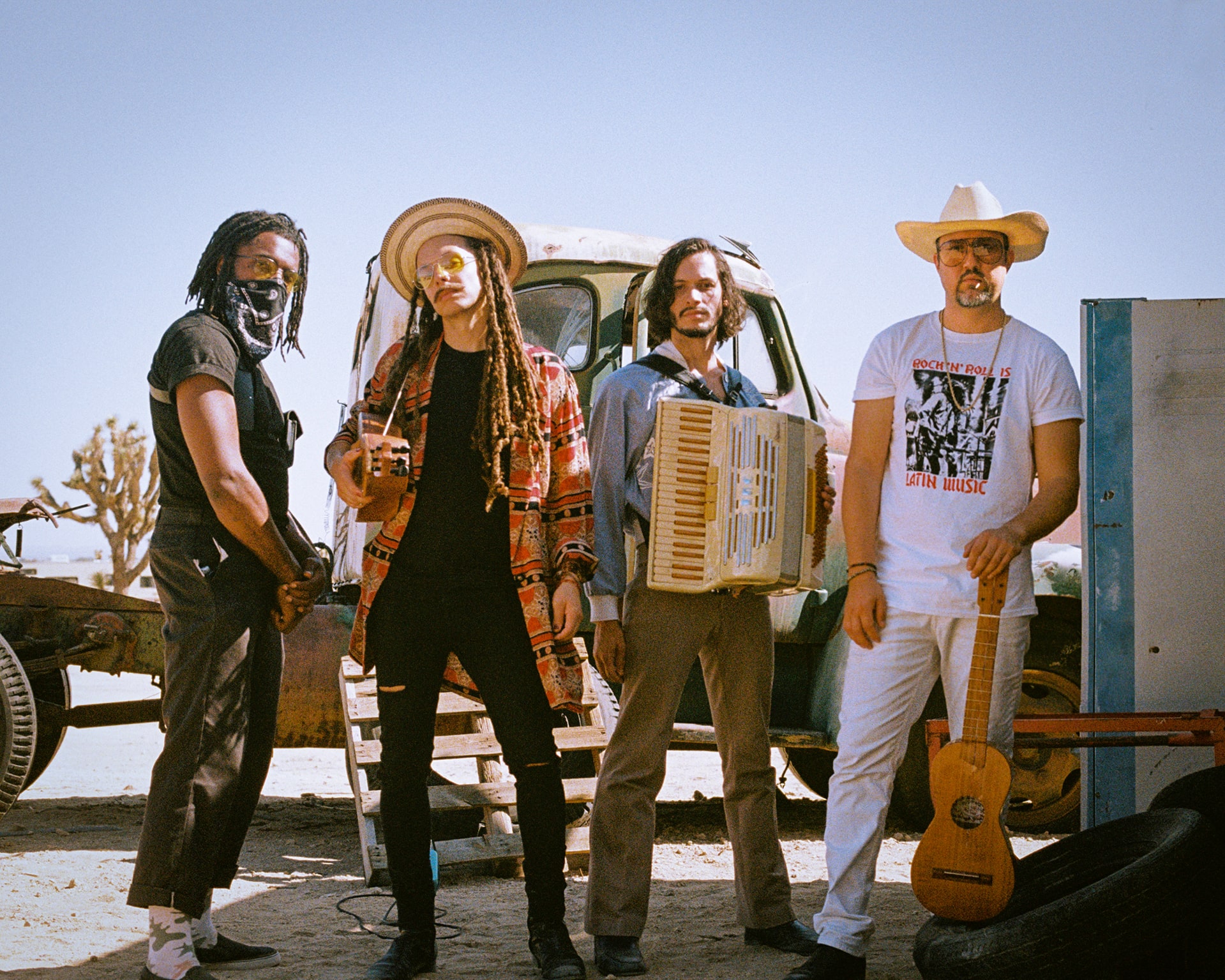
Did you know he was coming?
We knew he might come. He said he was in town and that he was gonna try to come. When we walked out on stage, we couldn’t see if he was out there. I remember thinking, nervously, “Oh God, is he in here? Did he make it in the room?” I didn’t see him the whole set, but he made it, and – sure enough – he saw the whole set. And we were beyond giddy. We knew he wanted to collaborate with us, so we started this collaboration that became “No Te Calles” (Don’t Be Silent).
I remember he had finished the lyrics of it, with the vocals and left the bridge open for me to sing. I had to write the lyrics and send them to him for him to agree that’s how the song should end. He’s my favorite Spanish writer so I was nervous as all hell.
You gotta get it right.
I gotta get it right! He wrote back and said, “I like it. YOu closed the argument of the song; closed the loop of the idea.” That definitely gave me some confidence like, “All right. All right, we’re on the right path.”
There’s nothing like getting validation from one of your Idols.
Oh, man. Nothing like it! And he’s not alone (far as folks like that) in our lives. Los Lobos’ have been mentors to us. We collaborated with them; (keyboardist and producer) Steve Berlin produced our first three records. He’s still a collaborator on the album.
They also taught us a lesson, in a less intentional way. Berlin’s is the direct way; he sits down and starts giving you, almost like, a lecture. He’s thought about it in advance and he’s intentional about it in giving you excellent advice. With Los Lobos, it was more by observation. They just kept inviting us around their tribe. We would travel together, we’d open shows for them; do things collaboratively. Just observing things like the way they still love each other for years, after being on tour together. The fact that their backstage crew is like a family; all these people who have been part of this community for years, show up, bring food, and say hello. Since covid, not as much but pre-covid, it was like, literally, every city we went to, it was like they had cousins everywhere. They’re just friends who help out over years and years of this life and we were like, “Wow, that seems like the way you do it, you know.” Just be open-hearted and humble and be a part of the community. So we’re blessed to have those people in our lives and that’s why the idea of doing this community work alongside the band life has been baked in because we’ve observed it in the people we look up to.
How is it working with your brother (bassist Diego Chi)? Because I have an older brother; I don’t know if I could work with him. I couldn’t. (Laughs) We couldn’t do what y’all do.
I appreciate that. Look, we sometimes butt heads. We’re similar-minded so we have the same instincts as how to solve problems, so I admit there’s sometimes a little bit of tension like, “Are you gonna do this or am I gonna do this? Who’s gonna be in charge right now?” (Laughs)
But overall, the glue is this band represents this idea of folks who don’t feel like they’re part of any community. We’re immigrant people in the United States and as Panamanians, we didn’t have much ‘community’ in Kansas City. We had literally a group of maybe 15 in the whole town; we’d all get together sometimes, but none of the kids knew what Panama was or what our lives were like. So we were the weirdos – it was like…
“It’s the Panamanian kids! You’re from Mexico.”
“We’re not Mexican. We’re from Panama.”
“Where’s Panama?” (laughs) What do y’all speak down there?”
“We speak Spanish.”
“That’s not Spain. Why do you speak Spanish in Panama?
“Okay, all right.” (laughs)
So you grow up feeling ostracized or a little bit alienated. I remember thinking when I get back to Panama – we were going on vacation; I think I was about 12 – that’s when I’m going to really feel at home. I’m gonna go home and that’s what I’m really gonna connect. I get to Panama and I’m with my cousin. He’s like, “This is my gringo cousin; my American cousin.” (laughs) I’m like, “Dammit! I can’t win. I’m the weirdo here, too.”
I feel like that to kids who choose to be artists or any different kind of identity that makes you feel that way, that’s a big deal. Our drummer (Duncan Burnett) is a black man from Kansas City – the same kind of thing in a predominantly white town with a big black community but you can still feel tokenized; feel like you’re not really welcome anywhere. Or if you have your own sexual orientation or these kinds of things that you can feel like you can’t tap into a community.
And so, I think because my brother and I could connect off that, the message and feeling of our band – and doing the work in Spanish – is communicating our journey of self-acceptance, of being comfortable in our own skin and inviting people to go do that themselves. Trust us – it’s better to go and get to that place. We connect on the why we do this and then we’re able to do work through whatever there is.
And we still have these beautiful moments. We were up on stage playing this festival in Michigan and it’s really successful with people that don’t look anything like us, you know? That part of Michigan’s really, really rural, and everyone was white, which is great (laughs); just very different than the band. And they are just flipping out; hands in the air, jumping and loving the show, singing along; the whole bit. And we have this moment on stage and look at each other and in your glance, you communicate years and years of feeling, you know? It says, “Hey brother, look at what we’re doing!” This kicks ass! How cool is it to go through life and share this kind of journey with someone from your family?
In regards to singers, I was always curious about this – when you’re up on stage and you’re feeling the pulse of the crowd and the band behind you. You’ve got your own swag, you got your own vibe that you’re presenting on stage, but do you ever feel like there’s a moment where you dip into the bag of your ancestors and now you’re channeling somebody else or, like, you’re doing something that you’ve done before?
You didn’t know to who you asked that question. (Both laugh) It’s like it’s a whole thing, I can get a little far out now, but science has now accepted a reality where we can store in our cells genetic memory; we can store trauma passed down through generations. Many philosophers speak of that idea, and now science is like, “Yeah, that’s not just a feeling; that’s exactly what can be programmed in there.”
Normally, science tackles when things are wrong, right? Like, you invest a lot more resources to study cancer than the study of, say, athletic excellence. When things are going great, you don’t study as much; you study when people are sick. So we study it a little more, how you trap a trauma into epigenetics, and try to come to some understanding about that.
I believe that profound positive experiences can also be trapped; programmed in. I think that music is part of that science, in my opinion. I think that music can be a little doorway to open those up.
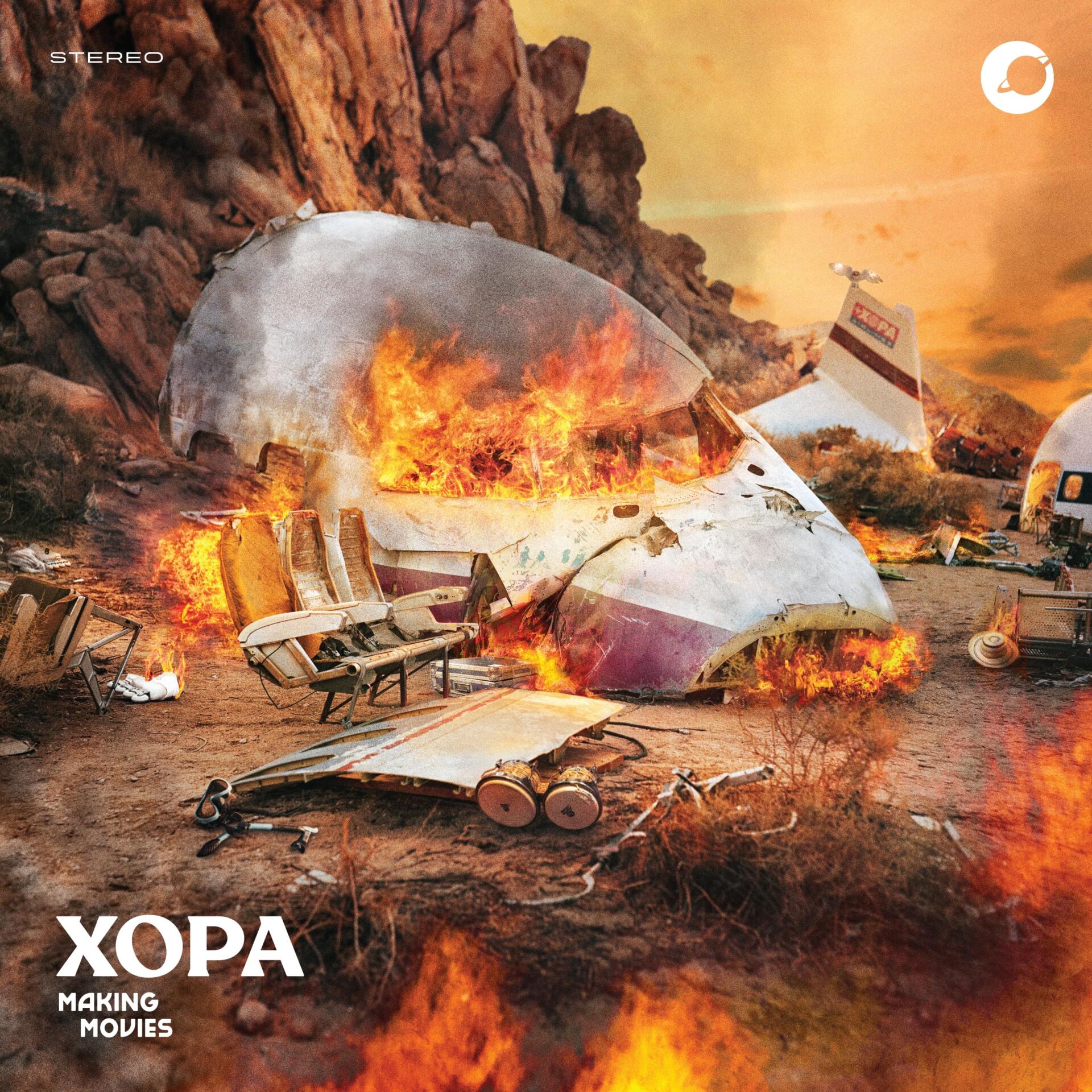
Kind of like a code breaker.
A code breaker where, all of a sudden, you can tap into this feeling that maybe generations and generations ago, your people danced to that rhythm or sang that melody. And I feel like, sometimes, you just know that’s how that song should go but it’s like, “How do you know? I just made this up, but I know with all my heart, that this is how it should be.” Well, maybe 1,000 years ago, that’s how the song went and it was such a good one that my ancestor had such a profound moment with this music, that I carry that moment, a little bit of it, in my DNA.
We’re inheriting this music and because of that, it can never die. You can oppress people, you can enslave people, you can take people’s culture away through colonization, through war, and through strife. But the culture kind of creeps out. Like the West African drum culture – It’s baked into the guitar strumming patterns in Mexico because they didn’t have their drums. It evolved into playing on boxes because they weren’t allowed to play on drums. In Cuba, it was a slave port so they kept the drums alive and Cuban music has more of a direct link to its ancestral musical heritage. So it’s like you can literally kill the person but you can’t kill these ideas and when music comes from a place of trying to communicate freedom for people, people carry that with them.
I feel like our journey, as the band, is trying to collectively tap into that. Tap it on stage and the songs are just vehicles to do that, and potentially do that for others, you know. Because they may not know that’s why they are grooving and dancing, but – let me get even farther out.
These people at Blissfest in Michigan, for example, are of European descendants. That’s a very big generalization but that’s why there are whiter-skinned folk in this part of North America. If they actually go all the way back to 100,000 years ago, those are human beings who migrated out of Africa and the Middle East that connects to Africa, tap into Europe and so, their skin got lighter and etcetera. Far enough back, they were grooving to some African drummers. So when we tap in, it shakes them, too. It’s inevitable.
So that’s kind of the place where we pull from, or at least we aspire to. We believe it’s there and we can tap into that well, and that’s what gives us the excitement to do this.
Making Movies; Wednesday, July 13, 8 PM; The Lounge at World Cafe Live, 3025 Walnut Street, Philadelphia, PA 19104
